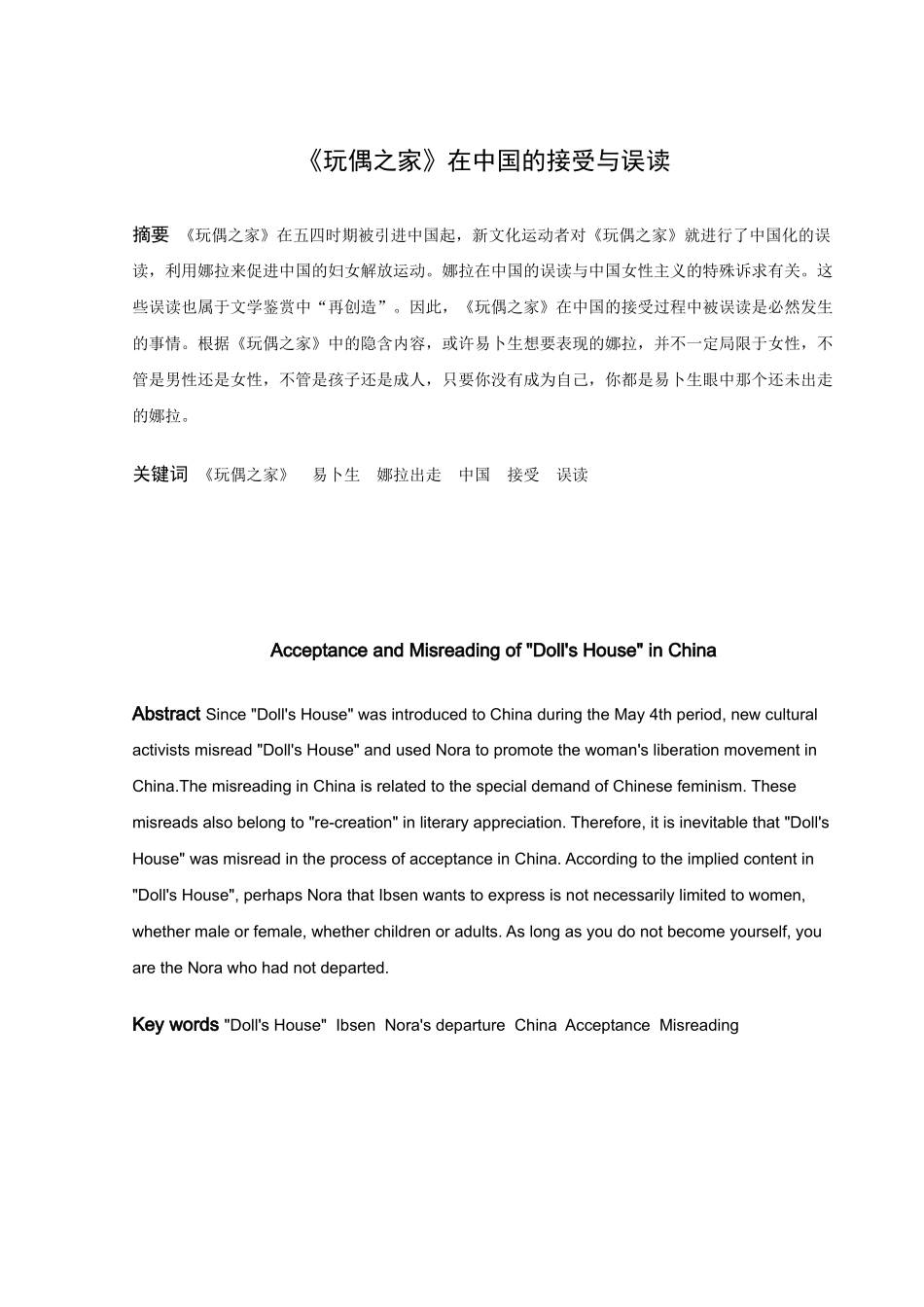《玩偶之家》在中国的接受与误读摘要 《玩偶之家》在五四时期被引进中国起,新文化运动者对《玩偶之家》就进行了中国化的误读,利用娜拉来促进中国的妇女解放运动。娜拉在中国的误读与中国女性主义的特殊诉求有关。这些误读也属于文学鉴赏中“再创造”。因此,《玩偶之家》在中国的接受过程中被误读是必然发生的事情。根据《玩偶之家》中的隐含内容,或许易卜生想要表现的娜拉,并不一定局限于女性,不管是男性还是女性,不管是孩子还是成人,只要你没有成为自己,你都是易卜生眼中那个还未出走的娜拉。关键词 《玩偶之家》 易卜生 娜拉出走 中国 接受 误读 Acceptance and Misreading of "Doll's House" in ChinaAbstract Since "Doll's House" was introduced to China during the May 4th period, new cultural activists misread "Doll's House" and used Nora to promote the woman's liberation movement in China.The misreading in China is related to the special demand of Chinese feminism. These misreads also belong to "re-creation" in literary appreciation. Therefore, it is inevitable that "Doll's House" was misread in the process of acceptance in China. According to the implied content in "Doll's House", perhaps Nora that Ibsen wants to express is not necessarily limited to women, whether male or female, whether children or adults. As long as you do not become yourself, you are the Nora who had not departed.Key words "Doll's House" Ibsen Nora's departure China Acceptance Misreading目 录引 言…………………………………………………………………………………………………………1一、《玩偶之家》在中国的译介与接受……………………………………………………………………1(一)译介与接受………………………………………………………………………………………1(二)论争与研究………………………………………………………………………………………2二、《玩偶之家》在中国接受中的误读……………………………………………………………………4(一)将娜拉过于敏感化………………………………………………………………………………4(...


